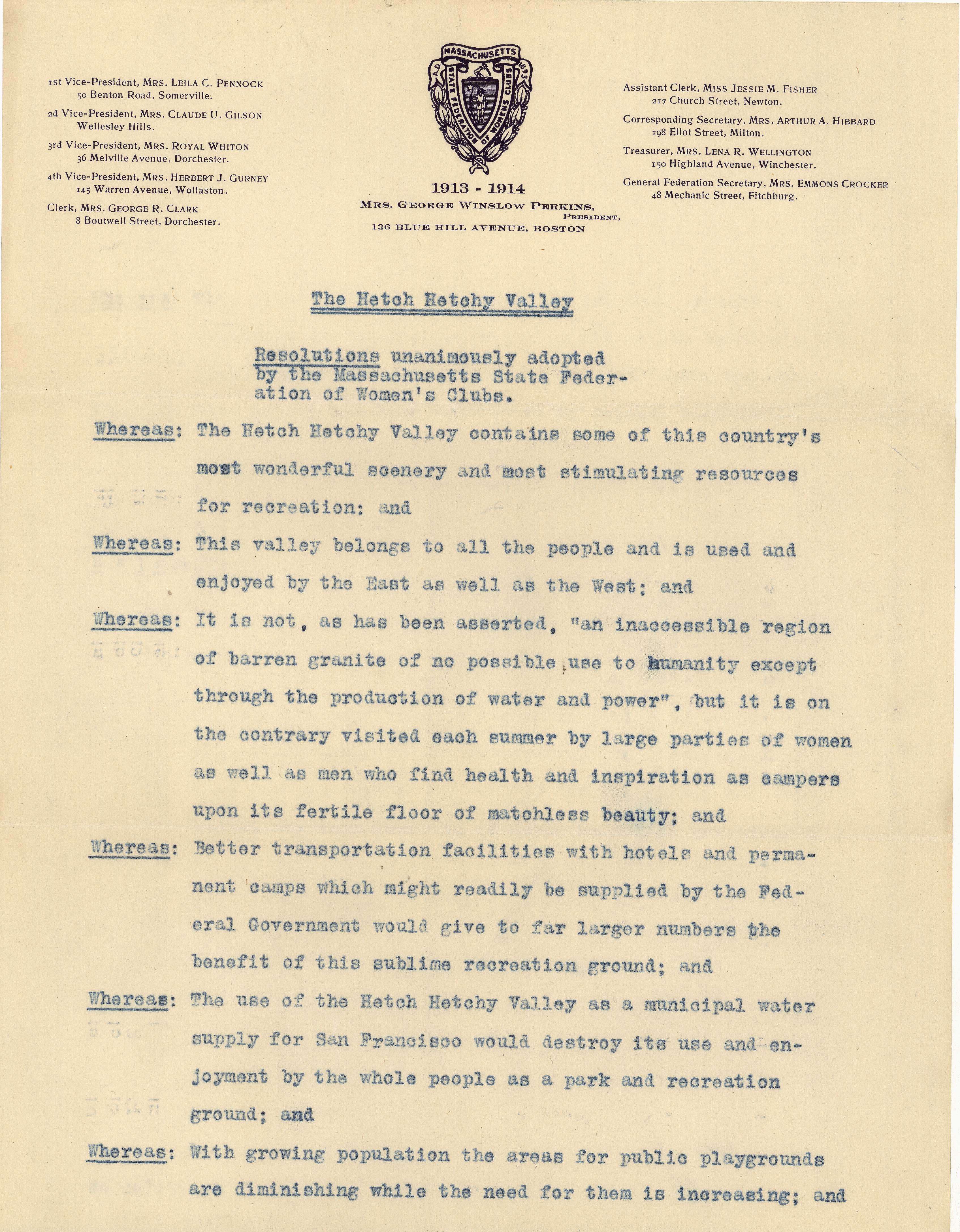Resolution by the Massachusetts State Federation of Women’s Clubs against the Raker Bill
11/25/1913

At the heart of the debate was the conflict between conservationists, who held that the environment should be used in a conscientious manner to benefit society, and preservationists, who believed that nature should be protected, saved from human interference. Siding with the conservationists, San Francisco citizens argued that the reservoir was necessary for the health of their city. On the other side, preservationists, led by John Muir, argued that Congress should protect the Hetch Hetchy Valley from destruction. Muir and his allies believed that nature should be enjoyed for its beauty, and not merely used for its resources.
Hundreds of individuals and organizations from across the country submitted petitions to Congress regarding the valley. These petitions, some of which are included below, bear witness to the birth of environmental activism as citizens weighed in, expressing multiple opinions about the proper use of National Park land and the relationship between local interests and national values.
In the end, Congress passed legislation that enabled the creation of a dam in the Hetch Hetchy Valley. President Woodrow Wilson signed the bill into law on December 19, 1913. Although the preservationists lost this battle, the damming of the Hetch Hetchy Valley raised public awareness about the importance of preserving nature, and helped justify the creation of the National Park Service in 1916.
Activities that use this document
- Environmental Case Study: Hetch Hetchy Valley
Created by the National Archives Education Team
Rights: Public Domain, Free of Known Copyright Restrictions. Learn more on our privacy and legal page.





